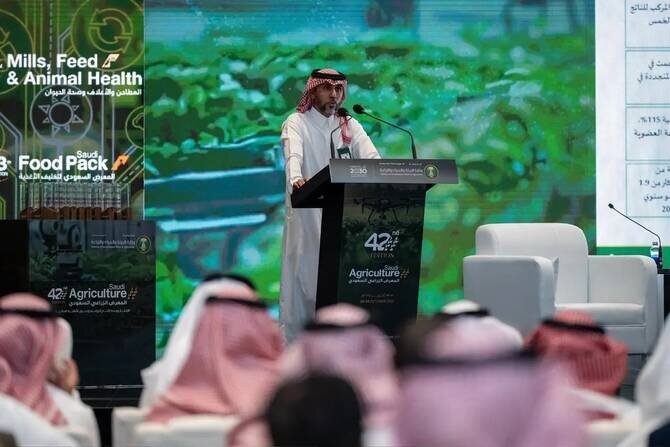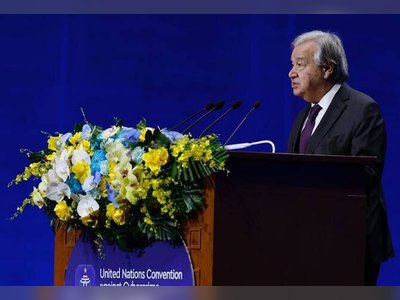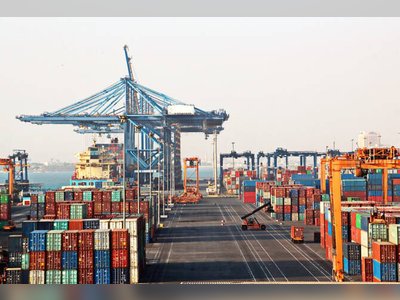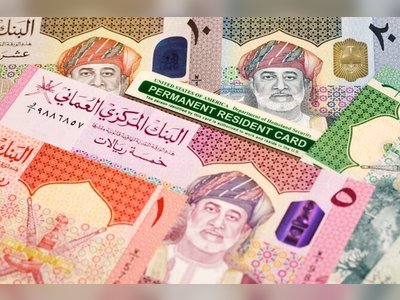
Saudi Agriculture Sector Contributes $31.5bn to GDP in 2024
Rising production and initiatives strengthen food self-sufficiency, says official data.
Saudi Arabia's agriculture sector contributed $31.5 billion to the country's gross domestic product (GDP) in 2024, driven by increasing production levels and initiatives aimed at enhancing food self-sufficiency.
According to official data from the Ministry of Environment, Water and Agriculture (MEWA), total agricultural and food production surpassed 16 million tonnes last year, indicating progress toward building robust, sustainable food systems.
Despite accounting for roughly 90 percent of desert land, Saudi Arabia has expanded domestic crop production and reduced its dependence on imports.
The Kingdom has already achieved full self-sufficiency in dates, fresh dairy products, and table eggs.
At the 42nd Saudi Agriculture Exhibition in Riyadh, Ali Al-Zahrani, director of MEWA's National Agriculture Strategy Implementation Department, highlighted the sector's growth, which has accelerated at a compound annual rate exceeding 7 percent over the past five years.
Al-Zahrani underscored the significance of the agriculture strategy in addressing challenges such as water scarcity, harsh climate conditions, low productivity, and difficulties in marketing and distribution.
The strategy focuses on ensuring the sustainability of the agricultural sector, enhancing its contribution to food security, economic growth, and social and environmental development.
This is achieved through effective resource management, adoption of innovative technologies, protection of farming systems and food safety, support for small farmers, and expansion of national capacities and international partnerships.
MEWA has launched 38 national initiatives under the strategy, including those aimed at boosting productivity, restructuring the sector to build capabilities, promoting sustainable rural development, enhancing plant and animal health through a One Health approach, and establishing resilient food systems.
Additionally, efforts are underway to improve natural resource sustainability and climate adaptation, marketing and agricultural services, protect local products, and promote exports.
Significant progress has been made in reducing the use of non-renewable water for agriculture by 52 percent compared to 2016, with soft agricultural loans exceeding $1.9 billion provided by the Agricultural Development Fund.
Investment opportunities have emerged for the private sector in plant and animal production, including integrated seed projects, fruit and vegetable processing, intensive livestock farming, aquaculture, and large-scale poultry production.
Total domestic fruit production, including dates, surpassed 2.9 million tonnes, achieving 64 percent self-sufficiency, while vegetable production exceeded 3.5 million tonnes, reaching 78 percent self-sufficiency with significant expansion of greenhouse systems alongside traditional farming methods.
MEWA continues to offer incentives such as streamlined land rental and simplified licensing to encourage investment and the adoption of innovative, sustainable agricultural practices.
According to official data from the Ministry of Environment, Water and Agriculture (MEWA), total agricultural and food production surpassed 16 million tonnes last year, indicating progress toward building robust, sustainable food systems.
Despite accounting for roughly 90 percent of desert land, Saudi Arabia has expanded domestic crop production and reduced its dependence on imports.
The Kingdom has already achieved full self-sufficiency in dates, fresh dairy products, and table eggs.
At the 42nd Saudi Agriculture Exhibition in Riyadh, Ali Al-Zahrani, director of MEWA's National Agriculture Strategy Implementation Department, highlighted the sector's growth, which has accelerated at a compound annual rate exceeding 7 percent over the past five years.
Al-Zahrani underscored the significance of the agriculture strategy in addressing challenges such as water scarcity, harsh climate conditions, low productivity, and difficulties in marketing and distribution.
The strategy focuses on ensuring the sustainability of the agricultural sector, enhancing its contribution to food security, economic growth, and social and environmental development.
This is achieved through effective resource management, adoption of innovative technologies, protection of farming systems and food safety, support for small farmers, and expansion of national capacities and international partnerships.
MEWA has launched 38 national initiatives under the strategy, including those aimed at boosting productivity, restructuring the sector to build capabilities, promoting sustainable rural development, enhancing plant and animal health through a One Health approach, and establishing resilient food systems.
Additionally, efforts are underway to improve natural resource sustainability and climate adaptation, marketing and agricultural services, protect local products, and promote exports.
Significant progress has been made in reducing the use of non-renewable water for agriculture by 52 percent compared to 2016, with soft agricultural loans exceeding $1.9 billion provided by the Agricultural Development Fund.
Investment opportunities have emerged for the private sector in plant and animal production, including integrated seed projects, fruit and vegetable processing, intensive livestock farming, aquaculture, and large-scale poultry production.
Total domestic fruit production, including dates, surpassed 2.9 million tonnes, achieving 64 percent self-sufficiency, while vegetable production exceeded 3.5 million tonnes, reaching 78 percent self-sufficiency with significant expansion of greenhouse systems alongside traditional farming methods.
MEWA continues to offer incentives such as streamlined land rental and simplified licensing to encourage investment and the adoption of innovative, sustainable agricultural practices.










